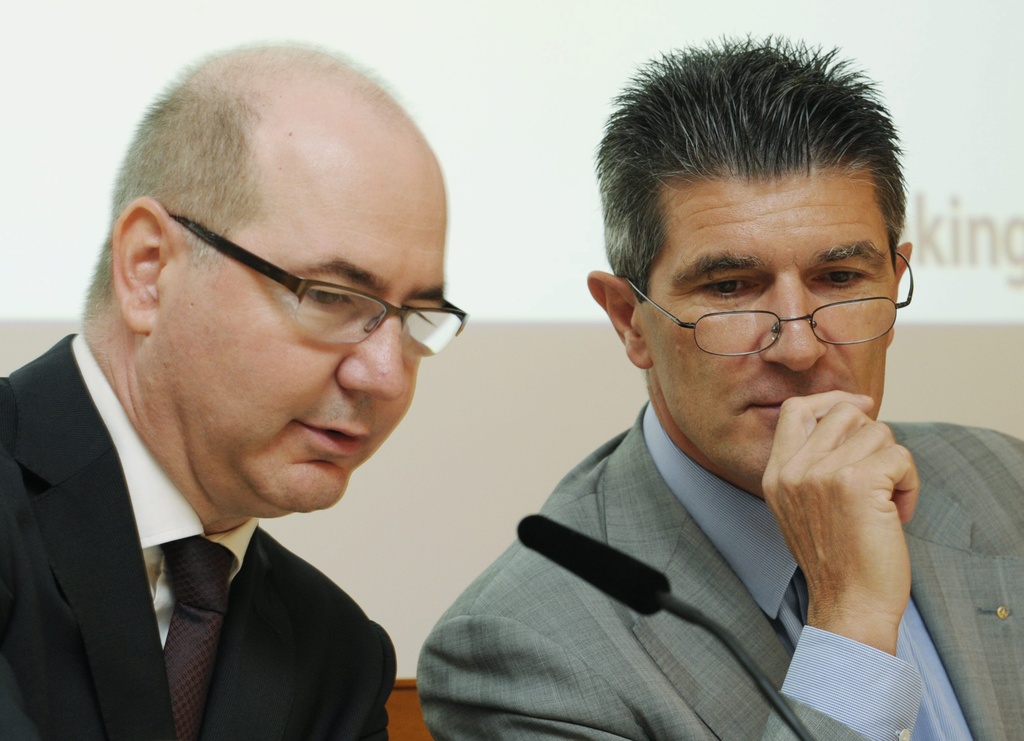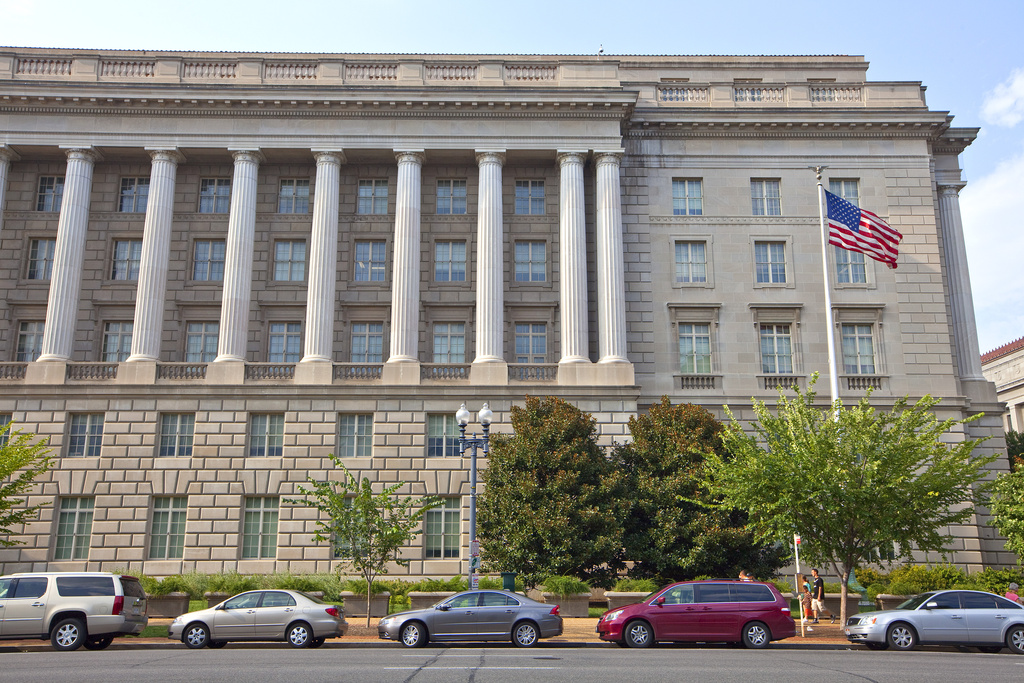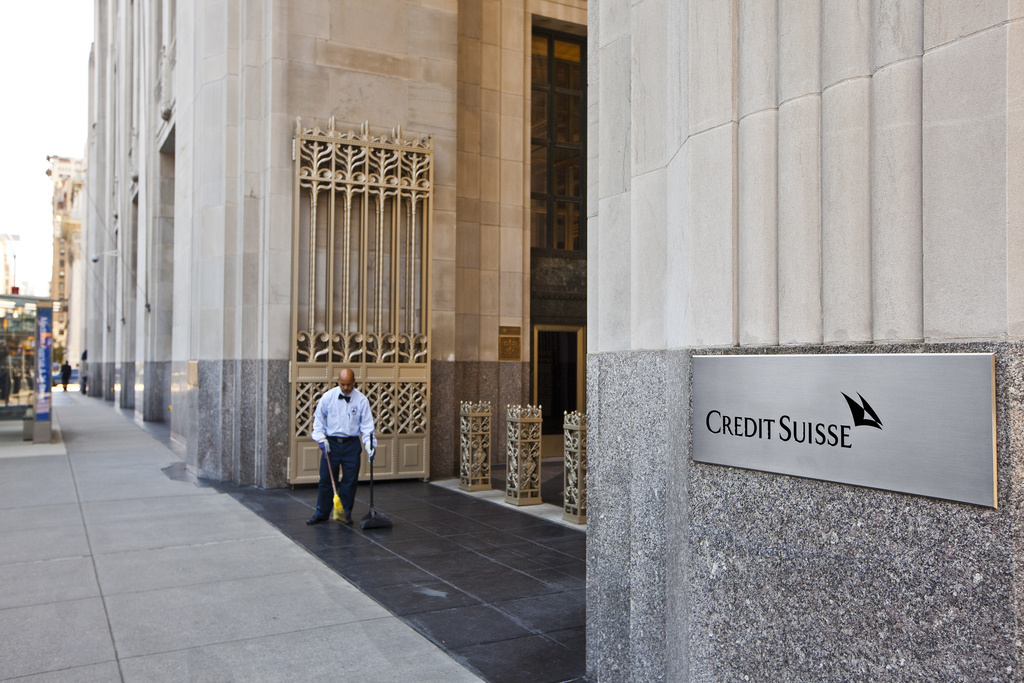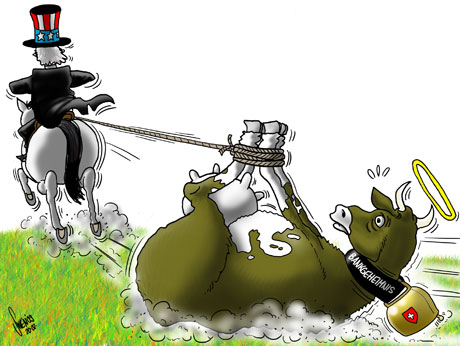Banks say US tax deal must respect Swiss law

Swiss bankers have rejected another UBS-style tax evasion deal following an ultimatum from the United States last week to turn over the names of more tax cheats.
The US has turned up the heat on Switzerland after finding evidence that Credit Suisse and other banks allegedly helped its citizens to break the law by hiding their wealth from the tax authorities.
The successful prosecution of UBS two years ago led to a Swiss-US treaty that severely dented Swiss banking secrecy laws by providing the names of nearly 5,000 bank clients.
But rather than burying the problem, the success of the deal has encouraged the US to pursue yet more banks – some of whom are rumoured to have illegally given UBS clients safe haven after Switzerland’s largest bank was caught out.
The Swiss Bankers Association (SBA) is desperate to avoid other banks facing a UBS situation and called on negotiators to find a solution this time that keeps secrecy intact.
Law abiding
SBA chairman Patrick Odier demanded a universal treaty binding on all countries rather than a raft of ad-hoc agreements between Switzerland and other states.
“The solution must be globally applicable, definitive and in line with current Swiss laws,” Odier said at the SBA’s annual conference in Zurich on Monday.
While accepting that Swiss banks must pay a penalty if they had broken foreign laws, Odier nevertheless denounced the latest demands from US deputy attorney-general James Cole as “too tough”.
“The US must recognise that legal certainty [of banking secrecy] is something that Switzerland must guarantee,” he said. “We cannot have one country refusing to respect the laws of another.”
The SBA pointed to the recent deals with Britain and Germany as a possible template. Under the terms of these treaties – yet to be rubber stamped – Swiss banks would pay withholding taxes on past and future earnings of foreign account holders.
Switzerland has also negotiated a new double taxation agreement with the US that is awaiting approval by the US authorities.
UBS deal stands alone
“I am very confident that we can find a common solution that would be in the interests of Swiss banks and the US,” SBA chief executive Claude-Alain Margelisch told swissinfo.ch.
“We solved the UBS case and I hope we find a definitive global solution for all Swiss banks. We must make sure that we do not have the same problem for a third time.”
Margelisch also dismissed the option of another UBS-style treaty despite that deal containing a paragraph that could force other Swiss banks to hand over client data if they were found to have broken US laws in the same way.
“The UBS case was special because it involved only one bank in a context that is not comparable with other Swiss banks,” Margelisch told swissinfo.ch. “I could not imagine that the Swiss parliament would be ready to pass another such treaty for the rest of the banking community during election year.”
But the latest signs coming from the US do not indicate that the Department of Justice (DoJ) is willing to compromise. Investigations have widened to around ten Swiss banks and Credit Suisse was recently served with official notice that it was being probed.
Not bluffing
Stories are also appearing in the media that the US negotiators are losing patience with their Swiss counterparts.
The fact that the second-highest ranking DoJ official, James Cole, has become publicly involved suggests to US tax lawyer Scott Michel that the US is not likely to withdraw its demands for new bank client data.
“It is a mistake to assume that when the DoJ makes a demand that they are bluffing,” Michel told swissinfo.ch. “There appears to be pent-up frustration that two years after the UBS case there is still evidence that other Swiss banks are helping US citizens hide their money away.”
He added: “The DoJ is not even asking for an exchange of information – a lengthy process involving case-by-case examination. They want a large batch of Swiss banking client information and they want it now.”
According to Michel, the US authorities appear to be building a legal basis to impose “draconian financial penalties” on Swiss banks that could dwarf UBS’s $780 million ($990 million) fine.
Swiss media are also reporting that the US would be prepared to start criminal legal proceedings against banks if they do not comply with their demands.
Speaking on Swiss television on Monday evening, Finance Minister Eveline Widmer-Schlumpf said that she still believed that an amicable solution could be found to the tax dispute with the US.
She pointed out that giving out client data by Tuesday would require emergency legislation, and that Switzerland does not operate that way.
The cherished Swiss banking confidentiality laws have been under constant attack since the financial crisis of 2008-9.
With many developed – and indebted – countries seeing large holes blown into their tax revenues, cracking down on tax evasion suddenly became a priority.
In 2009, Switzerland was forced to concede enhanced information exchange and renegotiate a host of double taxation agreements to get off an Organisation for Co-operation and Development (OECD) black list of tax havens.
Also in 2009, UBS admitted to aiding and abetting US tax evaders and had to pay a hefty fine. The Swiss government was subsequently forced to hand over the names of 4,450 US clients of UBS to the US authorities.
Several countries, including Britain, Italy, the US and Germany, offered tax amnesties in 2009 and 2010 to give citizens the chance to come clean about tax evasion.
Discovery of tax cheats was enhanced by the illegal sale of Swiss bank client data by a whistleblower. Germany and France were the main purchasers of the controversial data CDs, but information was passed on to other countries.
The US is currently pursuing its clampdown on other Swiss banks. Credit Suisse was recently informed that it was under investigation while several other banks, including cantonal owned enterprises, are thought to have fallen under the spotlight.
At the end of August 2011, US deputy attorney-general James Cole is reported to have demanded the names of yet more Swiss banking clients, threatening fines and legal action if Switzerland failed to comply.

In compliance with the JTI standards
More: SWI swissinfo.ch certified by the Journalism Trust Initiative





You can find an overview of ongoing debates with our journalists here. Please join us!
If you want to start a conversation about a topic raised in this article or want to report factual errors, email us at english@swissinfo.ch.